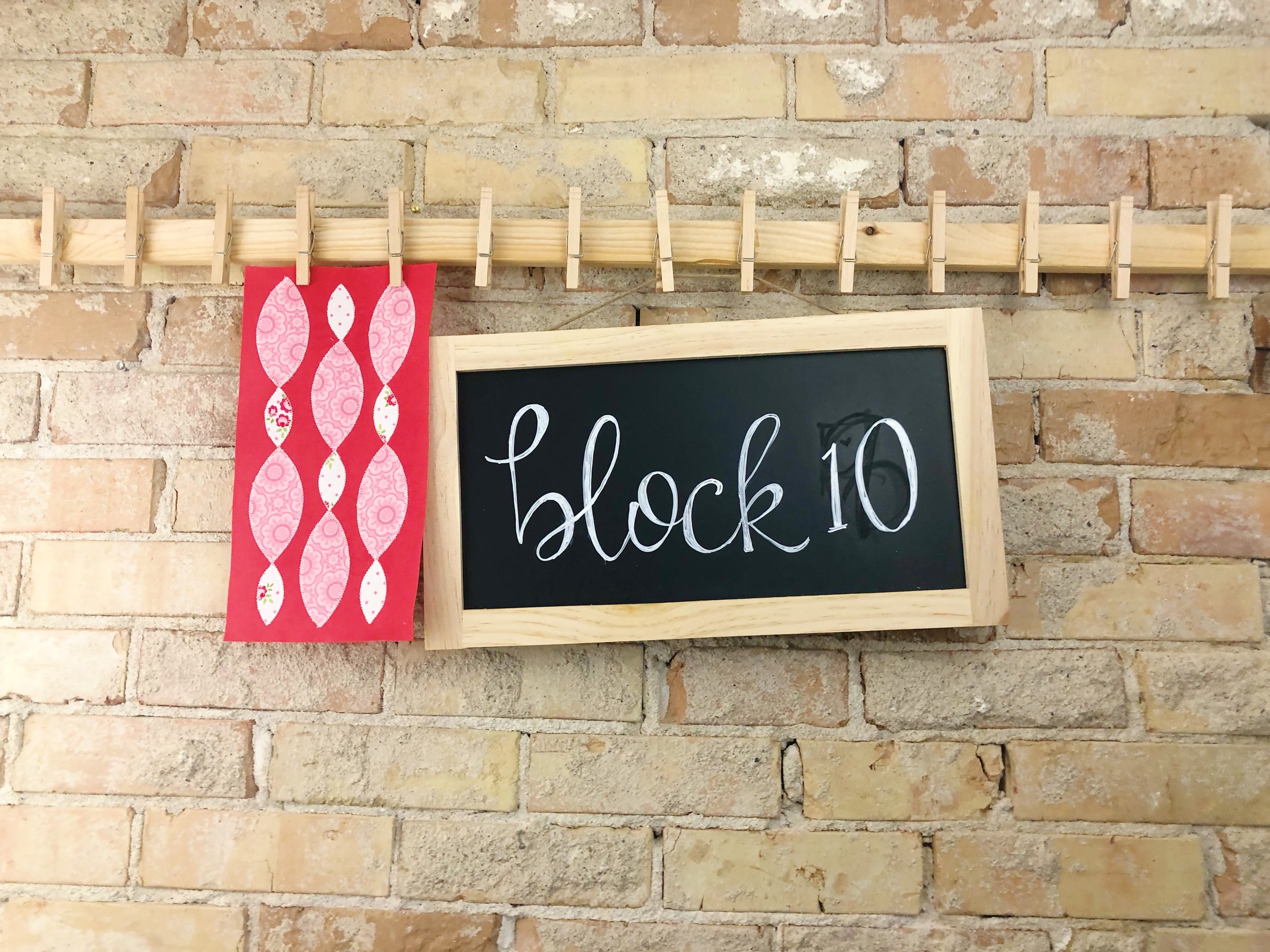Patient: [pey-shuh nt] adjective 1.quietly and steadily persevering or diligent, especially in detail or exactness 2. bearing provocation, annoyance, misfortune, delay, hardship, pain, etc., with fortitude and calm and without complaint, anger, or the like.
“Patience is not the ability to wait, but the ability to keep a good attitude while waiting. ”
Did anyone ever get sick of hearing their parents say “Patience is a virtue”? Well it turns out that they were right. In fact, patience is an awesome virtue especially when you apply it to friendship. I know that I am always so grateful when a friend shows patience for me. Whether I'm taking way to long telling a story, I’m running late (again) or I’m still venting about a certain annoyance, I really really appreciate my friend’s patience with me and my habits/issues.
I think quilters, in particular, make for great friends because they seem to have patience is spades. Think of all the time it takes to make a quilt. Ages and ages according to the laymen. It takes a lot of time, care and effort to make a quilt. The same skills develop patience.
“Being patient is something you decide to practice. It’s something you choose to do, even when- particularly when- you don’t feel like it.”
“Relationships can be viewed as the needle and thread. You cannot sew a fabric with just the needle or the thread. You will need both to get started. It takes patience to thread the needle. The more you learn the technique, the better you will get at it in the future. The same applies to your relationship. Be patient with each other.” ― Kemi Sogunle
Patient people make really wonderful friends. Research suggests that patient people tend to be more cooperative, more empathic, more equitable, and more forgiving. “Patience involves emphatically assuming some personal discomfort to alleviate the suffering of those around us,” write Debra R. Comer and Leslie E. Sekerka. So who doesn't want a friend like that?
If we want a patient friend, it's important that we return the favor. Kira M. Newman writing for UC Berkeley’s Greater Good Science Center gives us three ways to cultivate patience.
- Reframe the situation. Feeling impatient is not just an automatic emotional response; it involves conscious thoughts and beliefs, too. If a colleague is late to a meeting, you can fume about their lack of respect, or see those extra 15 minutes as an opportunity to get some reading done. Patience is linked to self-control, and consciously trying to regulate our emotions can help us train our self-control musIcles.
- Practice mindfulness. In one study, kids who did a six-month mindfulness program in school became less impulsive and more willing to wait for a reward. The GGSC’s Christine Carter also recommends mindfulness practice for parents: Taking a deep breath and noticing your feelings of anger or overwhelm (for example, when your kids start yet another argument right before bedtime) can help you respond with more patience.
- Practice gratitude. In another study, adults who were feeling grateful were also better at patiently delaying gratification. When given the choice between getting an immediate cash reward or waiting a year for a larger ($100) windfall, less grateful people caved in once the immediate payment offer climbed to $18. Grateful people, however, could hold out until the amount reached $30. If we’re thankful for what we have today, we’re not desperate for more stuff or better circumstances immediately.
I believe that patient friends show such love and care. They prove their loyalty with time, forgiveness and encouragement. They see us for the best we can be and patiently wait for us to show our better side.
“Patience is not sitting and waiting, it is foreseeing. It is looking at the thorn and seeing the rose, looking at the night and seeing the day.”
About this block: We have made this block a couple of different ways. In the picture it is machine appliquéd using a blanket stitch. I love this method, it looks nice, it's fast, and you can use fun contrasting thread or make your threads match. We also made it using wax paper to prepare the shapes and hand stitching them in place. You can see more about that technique if you visit the post on the FUN block!
Happy sewing!

